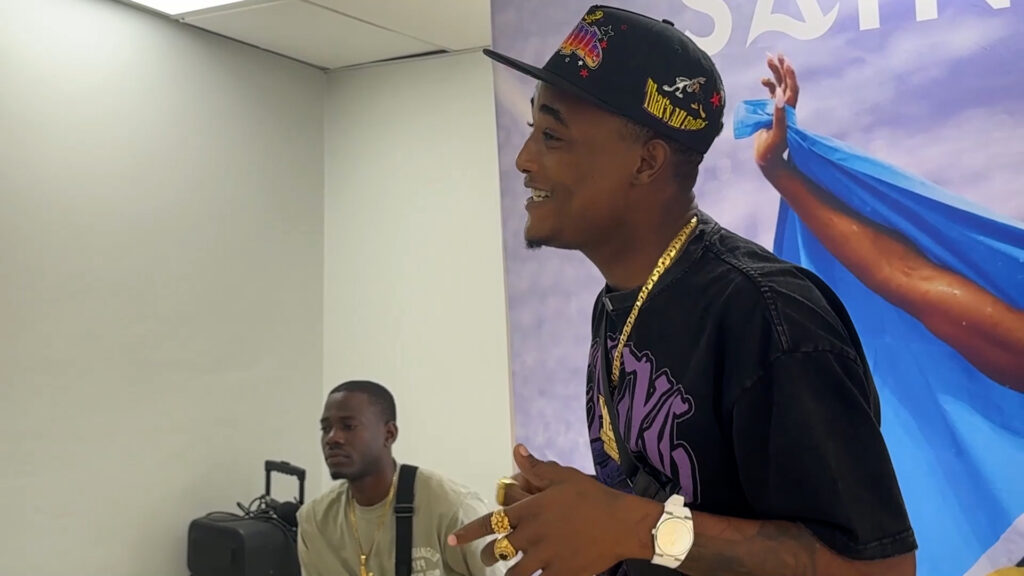Trinidadian recording artist Yung Bredda paid a special visit to the Boys Training Centre (BTC) during the 2025 Saint Lucia Jazz & Arts Festival.
The initiative, championed by the Saint Lucia Tourism Authority (SLTA) in collaboration with President of the Senate Alvina Reynolds, received the full endorsement of the Minister for Equity, Social Justice and Empowerment, Joachim Henry, who has responsibility for the BTC.
The visit was part of the ministry’s ongoing mission to uplift and empower young men in rehabilitation, using culture and mentorship as tools for transformation.
Yung Bredda, known for his raw storytelling and energetic stage presence, connected with the boys through a candid conversation about life, responsibility and personal growth. Drawing from his own journey through hardship and redemption, the young artist offered heartfelt advice.
“You want people to respect you, you must respect yourself. You want people to love you, you must love yourself,” he said. “You want people to see you as a man; you must do manly things and be a man.”
Reflecting on the value of listening to those who came before, he added, “As much as we think we know things, and it might be advancing, it’s the same thing as a long time ago, it just has a different name, a new technology, and a new way to do it. As they say, many roads to Zion… but it’s one destination.”

Henry reaffirmed the ministry’s commitment to rehabilitation and empowerment, noting that partnerships like this reflect a broader vision of national development rooted in compassion and opportunity.
The BTC has been a focal point for efforts to guide at-risk youth toward a brighter future. The centre’s manager, Leanna Wallace, expressed gratitude for the initiative and the attention it brings to the importance of inclusive outreach.
“This is not about judging the boys or dwelling on their past. It’s about the future,” Wallace said. “Daily, I keep telling them: it is you who must push yourself and strive to become what you want to become.”
She also called for a shift in how society refers to the boys, urging the public and media to stop using the term “wards of the state”.
“Call them residents, call them boys, because that’s how we move forward,” she said.




